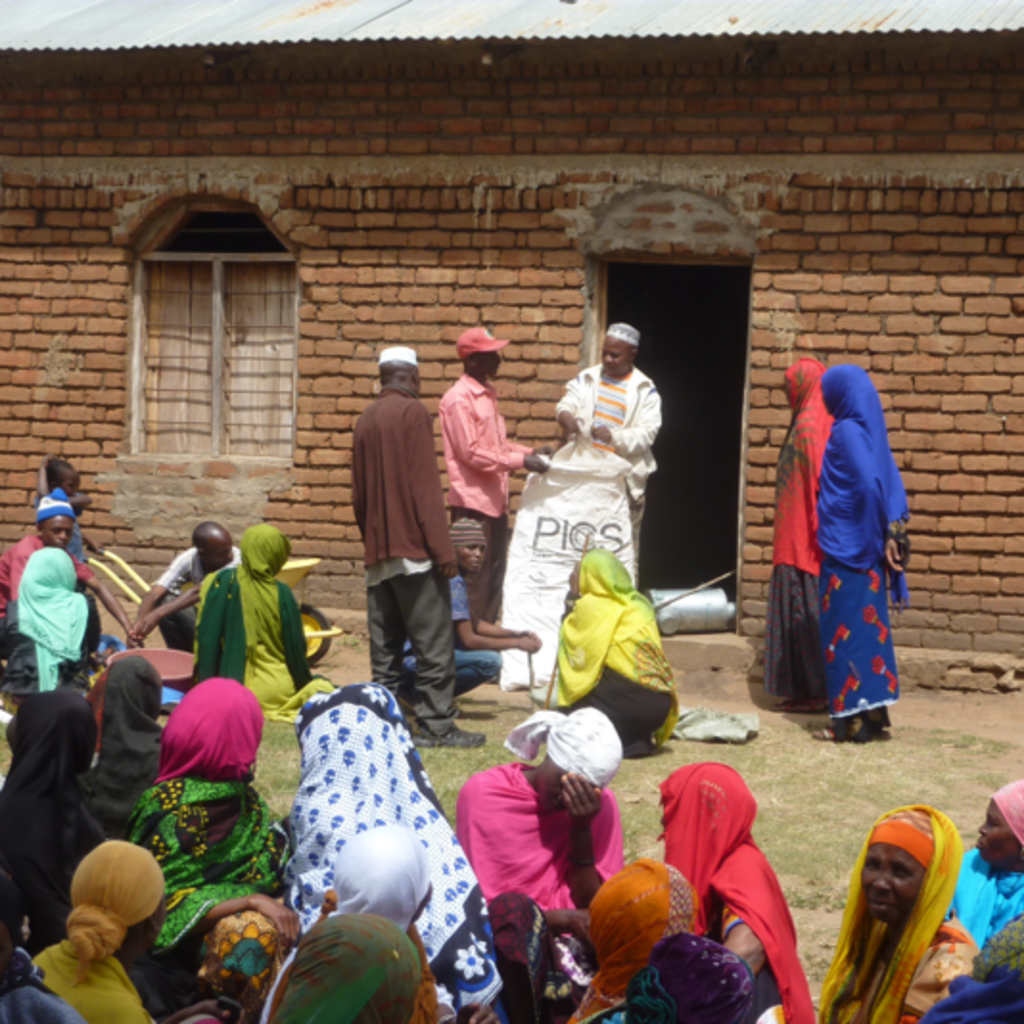Food loss reduction in Sub-Saharan Africa (Project Evaluation)
What do we see on the project photo?
A community learning about the use of PICS bags – Purdue Improved Crop Storage bags – a hermetic storage bag for grain storage, which protects the grain from post-harvest infestation with insects. The use of such bags is one of the techniques used for postharvest management losses reduction.
How would you explain to a child what the project is doing?
In many countries in Africa farmers lose a lot of what they grow because they don’t always know how best to store it. Since 2013, Switzerland has worked with different organizations to help these farmers and have them share knowledge with one another. Our team was there to understand if these organizations succeeded.
What is the project’s main objective?
The objectives of the evaluation were to assess the relevance, effectiveness, efficiency, prospects for sustainability and impact of the project, identify lessons learned and provide recommendations, and to review the coordination system, working modalities and institutional processes across stakeholders in DRC, Burkina Faso and Uganda.
Why is the project important?
The end-of-project evaluation forms an essential part of the evaluation process for the donor and contributes to understanding the impact of the project, accountability, and learning. A key part of the evaluation was to identify lessons learned and understand how they can be applied to future projects.
What has been the most positive moment during the project?
It was great to see that after the actual project concluded, which was jointly implemented by the three Rome-based agencies, the Technical Platform on the Measurement and Reduction of Food Loss and Waste was launched by FAO.
What have been the biggest challenges encountered in the project?
The initial proposal was submitted pre-COVID, and was to be done on-site. The biggest challenge was to change the methodology and carry out the entire evaluation as a remote desk-based study, and to identify and reach the right people to interview and collect the required information for the project.
Which is the most important lesson learnt from the project?
It has to be reiterated that closer collaboration between different institutions working on similar topics is absolutely crucial. Other important lessons include that issues as significant as the reduction of post-harvest food losses require long-term engagement, especially if new forms of cooperation are to be established and policy changes are a central element to a project’s objectives.
About the project
Title:
End-of-project evaluation: Mainstreaming food loss reduction initiatives in Sub-Saharan Africa
Contact:
Dominique Guenat, Head of HAFL Hugo P. Cecchini Institute
Duration:
15.03.2020 - 15.09.2020
Funding institutions:
Swiss Agency for Development and Cooperation
Implementing institutions:
BFH-HAFL (evaluation) / FAO, WFP and IFAD (project)
Further information:
https://www.bfh.ch/en/research/research-projects/2020-672-310-434/

